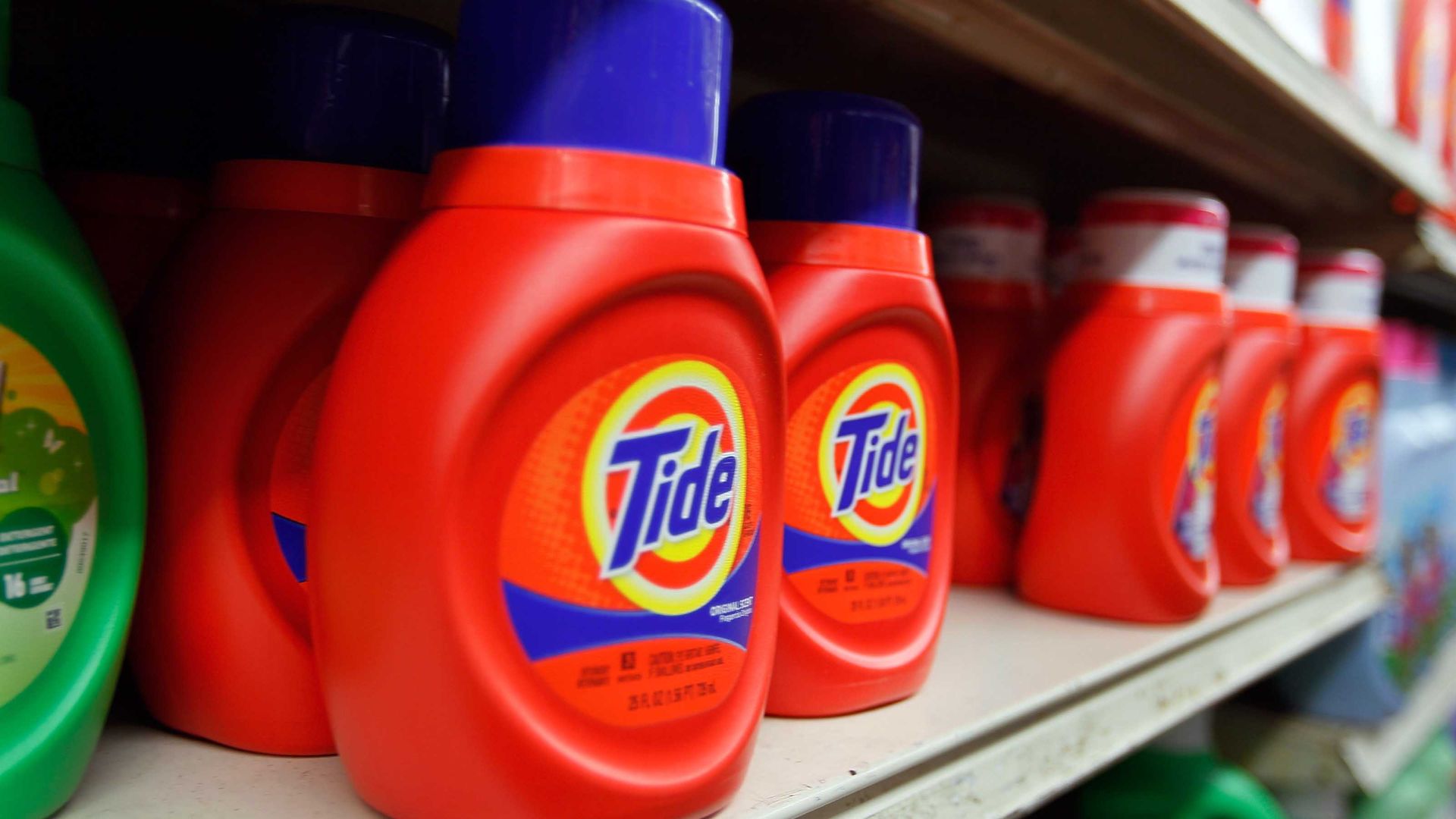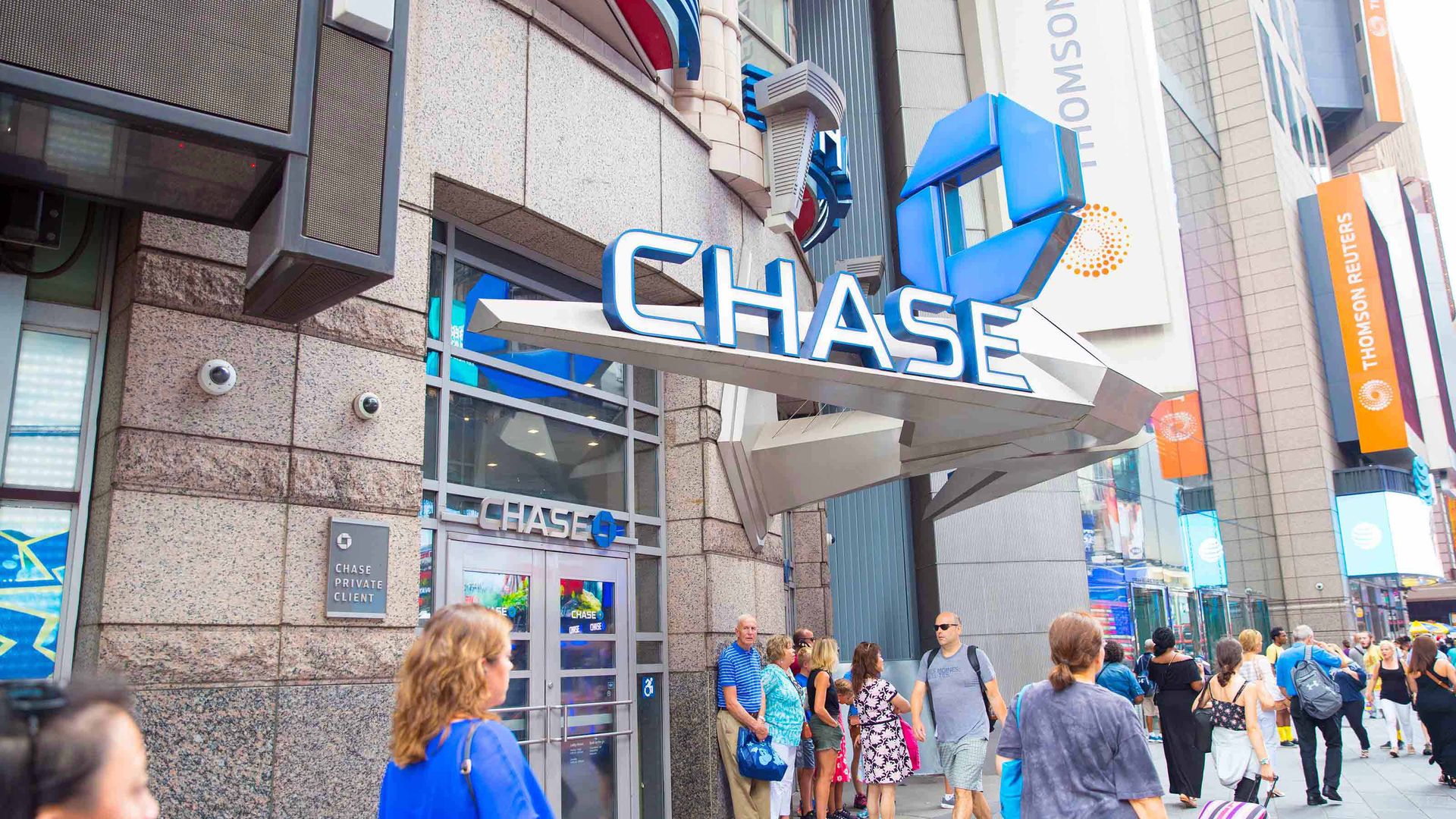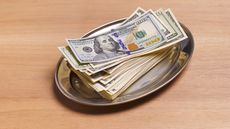Best Value Stocks to Buy
With a possible economic slowdown on the horizon, investors would be wise to consider stable, yield-friendly value stocks.


The stock market has fared well over the past year or so thanks to market participants' increased appetite for riskier assets. But for those with a long-term investing horizon, Wall Street's best value stocks continue to be an attractive place to plunk down their money.
In a go-go market, it's often possible to simply look at the top momentum stocks or high-flying companies that are topping Wall Street forecasts. But when things get less certain, it becomes harder to depend on growth stocks.
Value stocks, on the other hand, are companies that are built on a solid foundation of sales and profits. They are also some of the best dividend stocks around, proving to shareholders that their operations are secure.
Additionally, unlike cheap stocks that tend to be risky and volatile, the best value stocks are often stable additions to portfolios that provide steady returns over time.
And with some expecting the U.S. economy to fall into a recession at some point within the next year or at least a short-lived economic slowdown, investors would be wise to keep value stocks on their radar. This is because value investing typically involves companies that fare better during periods of economic uncertainty due to their dependable business models.
With that in mind, here are seven of the best value stocks to buy now. To put together our list of the best stocks to buy, we focused on companies that span a variety of sectors, but boast rock-solid fundamentals, strong balance sheets and a commitment to rewarding shareholders.
Data is as of March 15. Dividend yields are calculated by annualizing the most recent payout and dividing by the share price.

To continue reading this article
please register for free
This is different from signing in to your print subscription
Why am I seeing this? Find out more here

Procter & Gamble
- Sector: Consumer staples
- Market value: $379.7 billion
- Dividend yield: 2.3%
When it comes to reliable revenue, consumer products icon Procter & Gamble (PG, $161.38) is the envy of Wall Street. Its massive portfolio of in-demand brands includes Gillette razors, Tide and Downy detergents, Crest toothpaste, Bounty and Charmin paper products, and a host of others. These goods are on the weekly shopping lists of many consumers, and are likely to stay there regardless of the ups and downs of the broader economy.
And it's not just U.S. shoppers we're talking about, either, as P&G operates in about 70 countries worldwide.
Thanks to this steady sales engine, P&G also offers reliable dividends – and consistent growth in that payout to boot. Specifically, Procter & Gamble boasts a stunning 67 consecutive years where it has increased its dividend payouts, the most recent occurring in April 2023 when it hiked its quarterly dividend by 3%.
P&G also said it expects to pay around $9 billion in total dividends and $6 billion in stock buybacks in fiscal 2024 as part of its continued commitment to shareholder value. Though growth is admittedly modest in the consumer staples businesses of P&G, you can't argue that this is one of the best value stocks for investors.

Coca-Cola
- Sector: Consumer staples
- Market value: $260.1 billion
- Dividend yield: 3.2%
One of the most recognizable brands on the planet, Coca-Cola (KO, $58.46) has more than 120 years of operating history and a rock-solid global operation that has withstood the test of time. That was certainly true in 2022, when the Dow Jones stock posted a total return (price return + dividends) of 10.6% vs an 18.1% decline for the S&P 500.
KO's durability is also supported by the fact that the iconic investor Warren Buffett of Berkshire Hathaway (BRK.B) has been a longtime proponent of Coke. KO has been a member of the Berkshire Hathaway equity portfolio since the late 1980s. What's more, the holding company is Coca-Cola's largest shareholder at present, with a stake of more than 9%.
It's easy to see why, as Buffett tends to be drawn to long-term value stocks that pay generous dividends and offer stable returns. That's Coca-Cola in a nutshell. Its most recent dividend hike in February brought KO's streak of raising its payout to 62 years.
With long-term stability and a reliable dividend, this is exactly the kind of value stock that investors want to put their money behind for the long run – just as Warren Buffett has done.

JPMorgan Chase
- Sector: Financial services
- Market value: $548.1 billion
- Dividend yield: 2.2%
JPMorgan Chase (JPM, $190.30) is the largest U.S. bank by market value, as well as the largest bank by deposits with some $3.4 trillion in assets under management. You won't find a more stable mainstay among financial stocks than JPM.
The firm is well established and well respected, with the roots of the company dating back to 1799. The bank has weathered many storms over those years, including being the first to bounce back from the financial crisis of 2008. And in fact, it is the only one of the "Big Four" financials that has seen both its share price and dividend payouts eclipse where they were before the Great Recession and housing crash gutted the sector.
"Of the banks we cover, we think JPM is best positioned both balance-sheet wise and from an execution standpoint given the ability to flex its competitive advantage," said BofA Securities analyst Ebrahim H. Poonawala (Buy) following a recent interview with JPMorgan CEO Jamie Dimon. The company's strong fundamentals provide "defensibility against a worse than expected macro-outcome, but also has the potential to drive upside surprises," Poonawa adds.
No wonder the long-term price performance of JPM is steadily higher, across all manner of market disruptions. With a dividend yield that is nearly twice that of the broader S&P 500 and a brand that is one of the most respected in the sector, this megabank is one of the best value stocks that long-term investors can believe in.

Johnson & Johnson
- Sector: Healthcare
- Market value: $381.0 billion
- Dividend yield: 3.0%
Though it sounds morbid, Johnson & Johnson (JNJ, $158.18) has long been known as a "widow-and-orphan" stock on Wall Street. These investments get their name because they typically pay a generous dividend and offer generally low-risk returns, meaning that on the chance the household breadwinners die unexpectedly, their widow and/or children will be provided for.
That may be an old fashioned notion, but considering Johnson & Johnson was founded back in 1886, there's probably good reason this term has stuck around. Over the intervening years, JNJ has delivered on this promise of stability and consistency, too, and is now one of the 15 largest U.S. stocks, with a market cap of $381 billion.
The company has a massive consumer brand portfolio that includes Tylenol and Band-Aid products – a division that's now its own separate company following the impressive May 2023 initial public offering (IPO) of Kenvue (KVUE).
As a result, JNJ is now focused on its largest line: Its pharmaceutical segment which includes prescription drugs to treat cancer, arthritis and other conditions. You may also remember that JNJ was one of the leading COVID-19 vaccine providers a few years ago, with the world's first single-dose shot. On top of that, it also makes a host of medical devices including artificial joints and surgical tools. These goods are a higher margin than a box of Band-Aids, to be sure, and provide a lot more oomph to the bottom line.
But regardless of the products you're looking at, it's undeniable that Johnson & Johnson is a top brand that healthcare professionals – as well as dividend stock investors – have come to rely on. The blue chip stock raised its dividend payout in April 2023 for the 61st consecutive year, proving again its long-term commitment to shareholder value. This makes it one of the best value stocks to consider going forward.

AT&T
- Sector: Communication services
- Market value: $122.0 billion
- Dividend yield: 6.5%
Value stocks often don't have remarkable growth stories. But what they do tend to offer is unrivaled stability and a commitment to delivering solid results and generous dividends year-in and year-out.
AT&T (T, $17.05) is the very embodiment of this approach, with a model that has what it takes to survive any short-term volatility on Wall Street or in the broader economy.
T is among the largest telecommunications companies in the world, and the number one carrier in the U.S. as measured by wireless subscriptions, with about 45% share of the market. There's a wide moat in telecom, given the very expensive nature of building a network of 5G towers, so it's highly unlikely that this top seat in the industry will change anytime soon.
Plus, AT&T is one of the top S&P 500 dividend stocks. The company boasts a generous yield and it has paid a dividend for more than three decades. T has also been known as a reliable dividend grower, barring the spinout of Warner Bros Discovery (WBD) last year that resulted in an instant reduction in both its market capitalization and dividend as a result of restructuring.

Shell
- Sector: Energy
- Market value: $212.0 billion
- Dividend yield: 4.2%
Shell (SHEL, $65.86) is an international stock with headquarters in the U.K. Those who have been around a while may remember the company's former name: Royal Dutch Shell.
Regardless of which country Shell calls home, this multinational oil and gas giant is one of the most dominant energy stocks on the planet. In fact, it is currently the fifth largest energy company by market capitalization, falling behind Saudi Aramco, Exxon Mobil (XOM), Chevron (CVX) and China's PetroChina.
In the age of climate change, you might think it's hard to claim that any traditional integrated energy company is one of the best long-term value stocks. But the fact is that carbon-neutral sources are still only part of global energy production – and as of the end of 2022, Shell reported nearly 10 billion barrels of oil and equivalents in its reserves to help fuel the world during this transition.
From a long-term perspective, Shell also is worth considering for its dividend. It yields three times that of the S&P 500 after recently boosting its payout from 57.5 cents quarterly to 68.8 cents – an impressive 20% increase.
Plus, shares have surged more than 22% in the past 12 months, swimming upstream in what has undoubtedly been a challenging and volatile environment on Wall Street.

Altria Group
- Sector: Consumer staples
- Market value: $77.4 billion
- Dividend yield: 8.9%
Altria Group (MO, $43.87) is the company behind Marlboro cigarettes, Black & Mild pipe and cigar products, and smokeless tobacco like Copenhagen and Skoal. The tobacco products giant is one of the best value stocks with staying power.
Sure, its products aren't particularly healthy – and admittedly, there's not a lot of potential growth in a product category that is undeniably bad for you. But these tobacco products have incredibly reliable sales thanks to big brands and loyal customers, which supports a stable stock price and consistent dividends.
In fact, the company has logged more than 50 consecutive years of dividend increases – and that's not just a nominal payout, either. Additionally, MO has one of the highest dividend yields in the S&P 500, boasting a sustainable and generous payout that is six times the yield on the broad-market index.
Altria is a cash cow, throwing off a staggering $9.0 billion in free cash flow over the past four quarters. This has allowed it to return the majority of that back to shareholders, with about $6.8 billion in dividends over the same period.
The icing on the cake is that as a "sin stock," it sells products that its customers continue to buy across any economic environment. That makes Altria a value investment to believe in, even if Wall Street hits a snag in the months or years ahead.
Related content
Get Kiplinger Today newsletter — free
Profit and prosper with the best of Kiplinger's advice on investing, taxes, retirement, personal finance and much more. Delivered daily. Enter your email in the box and click Sign Me Up.

Jeff Reeves writes about equity markets and exchange-traded funds for Kiplinger. A veteran journalist with extensive capital markets experience, Jeff has written about Wall Street and investing since 2008. His work has appeared in numerous respected finance outlets, including CNBC, the Fox Business Network, the Wall Street Journal digital network, USA Today and CNN Money.
-
 The Taxes That Come out of Your Paycheck
The Taxes That Come out of Your PaycheckPayroll Tax Your take-home pay is often less than expected due to several payroll tax withholdings you need to know.
By Kelley R. Taylor Last updated
-
 Why You Should Invest in Commodities
Why You Should Invest in CommoditiesThese portfolio diversifiers are in a long-term uptrend and show why you should invest in commodities
By Anne Kates Smith Published
-
 Why You Should Invest in Commodities
Why You Should Invest in CommoditiesThese portfolio diversifiers are in a long-term uptrend and show why you should invest in commodities
By Anne Kates Smith Published
-
 Now's a Great Time to Build a Bond Ladder
Now's a Great Time to Build a Bond LadderNavigating how to proceed with new or rollover money can be daunting. Here are some of the best ways to guarantee a high yield to maturity and full recovery of principal.
By Jeffrey R. Kosnett Published
-
 What's the Most Popular Investment? These Investors Might Be Missing Out
What's the Most Popular Investment? These Investors Might Be Missing OutThe most popular investment may shock you and it has widely underperformed other asset classes. Here’s what you need to know.
By Joey Solitro Published
-
 Stock Market Today: S&P 500 and Nasdaq Hit Records as Jobs Growth Slows
Stock Market Today: S&P 500 and Nasdaq Hit Records as Jobs Growth SlowsAn uptick in the unemployment rate amid a cooling labor market could accelerate the Fed's rate-cut timeline.
By Dan Burrows Published
-
 Softer June Jobs Report Raises Rate-Cut Bets
Softer June Jobs Report Raises Rate-Cut BetsJobs Report Slower hiring and a rise in the unemployment rate up the odds of the Fed easing more than once before year-end, experts say.
By Dan Burrows Published
-
 Insurance Stocks Do Just Fine Amid Harsh Weather
Insurance Stocks Do Just Fine Amid Harsh WeatherStrange as it sounds, heat waves and car accidents might be good for your portfolio.
By James K. Glassman Published
-
The Top-Performing Actively Managed Funds of the Last Decade
These are the actively managed funds that have performed best over the last decade.
By Nellie S. Huang Published
-
6 Bellwether Stocks to Watch
These bellwether stocks are like weathervanes for their industries or the economy and are worth watching as indicators.
By Kim Clark Published


